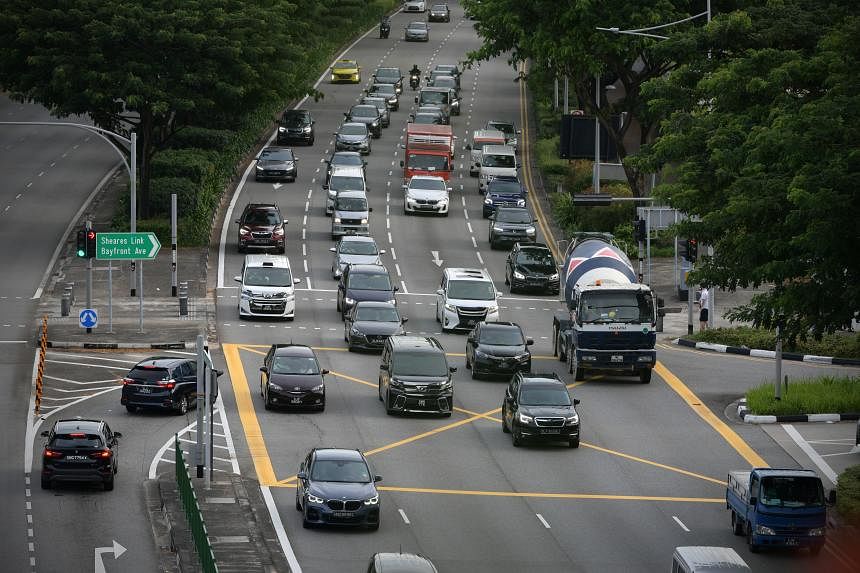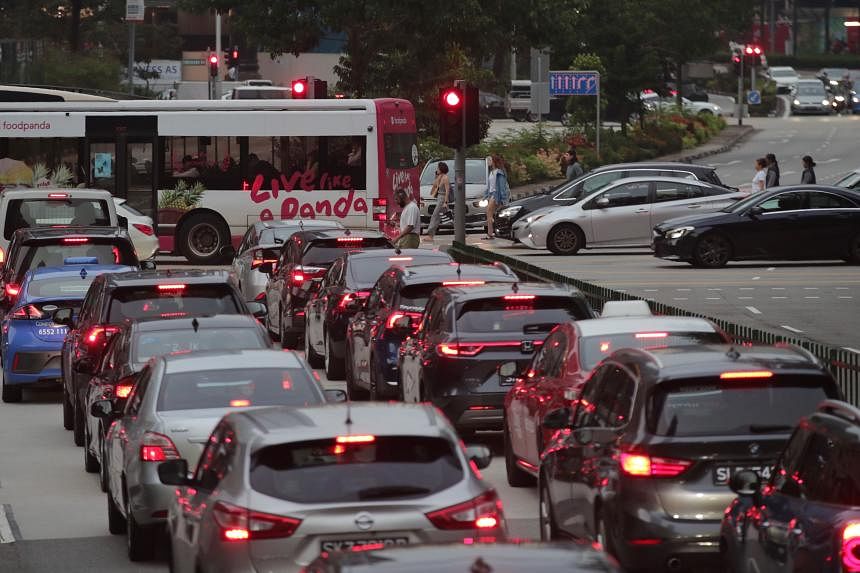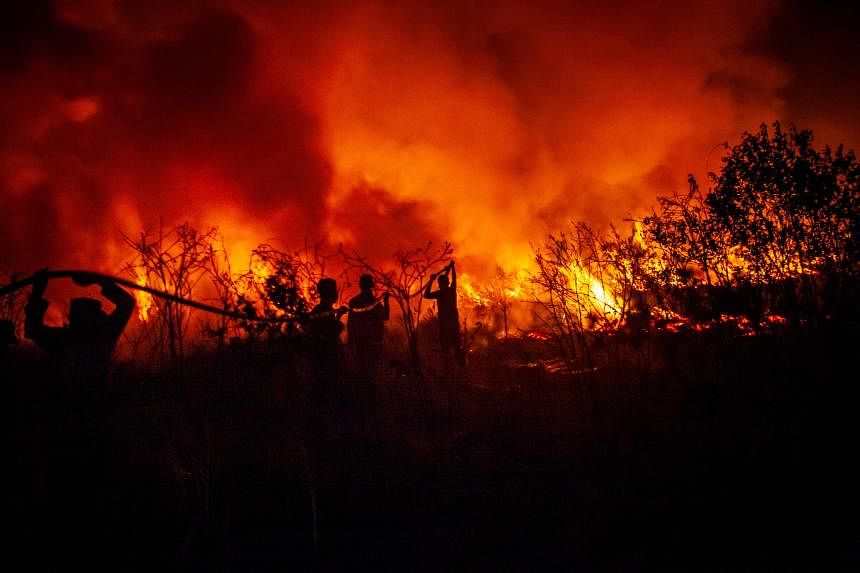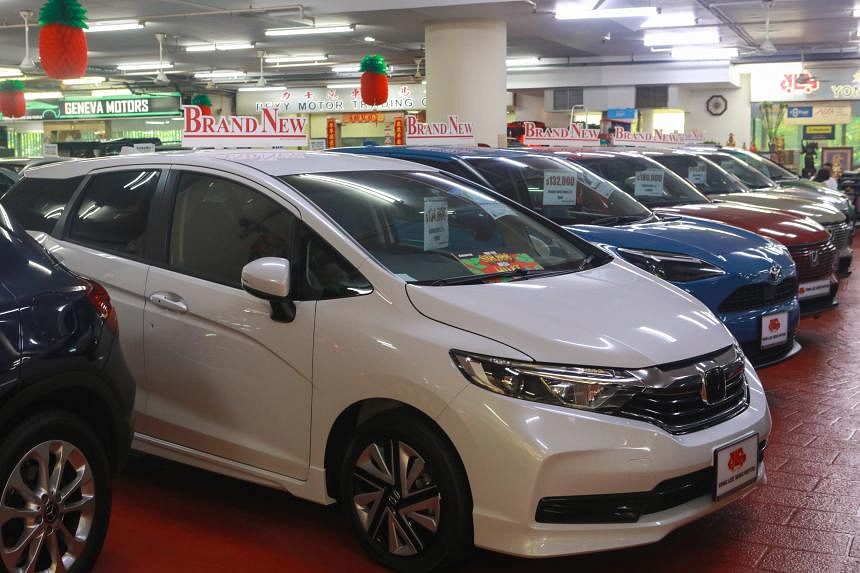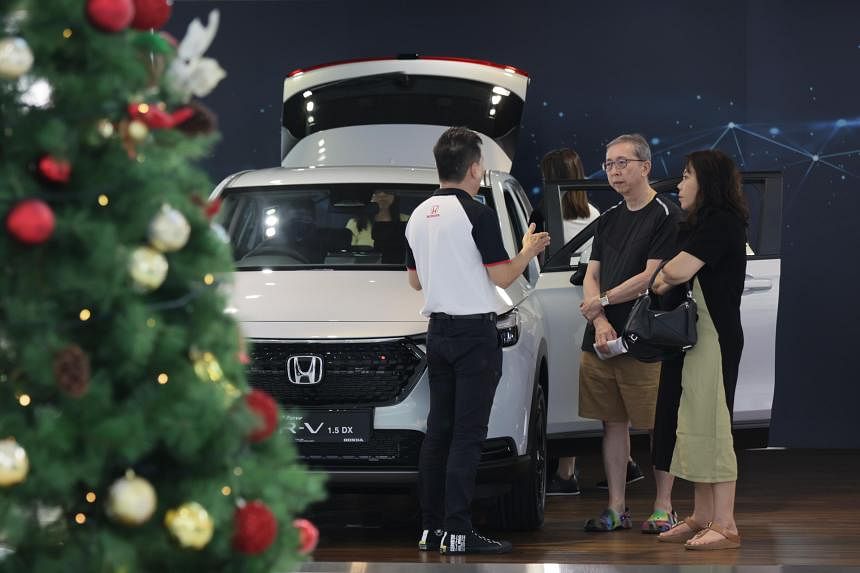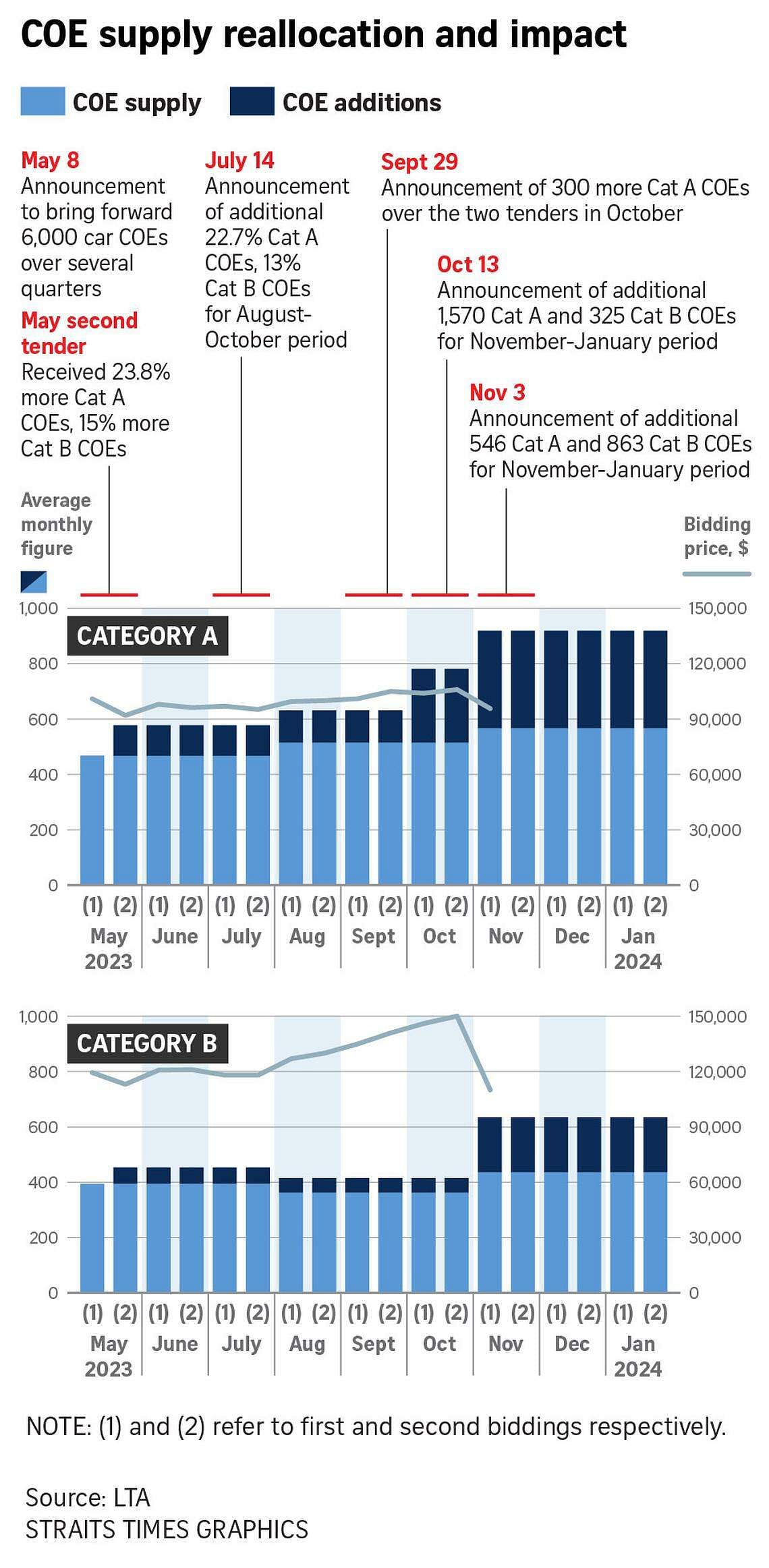Days of $150k COEs ‘are over’, but system needs thorough relook, say dealers, experts
Car prices have been lowered following the drop in certificate of entitlement premiums at the latest tender in November. ST PHOTO: GIN TAY
Lee Nian Tjoe
Senior Transport Correspondent
NOV 14, 2023
SINGAPORE – The sharp
drop in certificate of entitlement (COE) premiums on Nov 8 is likely to be the start of a downward trend in 2024, barring a surge in demand from private-hire fleet owners, said motor dealers.
This is even if prices rebound in the final tender exercise in November, they added.
But dealers and experts believe the system needs to be reviewed to better reflect market conditions and avoid wild swings in the premiums.
Motor traders expect the increased car COE supply between November and January – 9,313, compared with 6,901 in the previous quarter – to continue keeping prices in check in 2024. This marks a 35 per cent increase over what it was for the August to October period.
COE prices fell across all five categories at the tender exercise that closed on Nov 8.
The premium for Category B, for larger, more powerful cars and electric vehicles (EVs), tumbled $40,000 to $110,001. That for the Open category, which ends up largely for bigger cars, fell nearly $33,000 to $125,011.
This came after six successive tender exercises that saw record-breaking premiums for both categories.
On Nov 6, Acting Transport Minister Chee Hong Tat told Parliament that the Government
will bring forward COEs guaranteed to expire in the future to fill the present supply trough until supply peaks in 2026 and 2027.
This means “the days when COEs cost $150,000 are over”, said Mr Neo Nam Heng, adviser to the Automobile Importer and Exporter Association. “We will not see it again in the next two to three years.”
COE premiums will trend downwards in the next quota period of February to April, and remain suppressed for the rest of 2024, given the Government’s assurance that the COE quota will continue climbing, added Mr Neo, chairman of diversified motor group Prime.
The rolling average number of vehicles deregistered in the last four quarters is the main determinant of COE supply in a given period.
For their part, motor dealers track the number of vehicle deregistrations in earlier periods to make projections on the COE quota. This, in turn, influences their decisions on the number of vehicles they will need in stock.
Mr Neo said moves to draw on future COE supply effectively severs the link with deregistrations.
This exacerbates the challenge for motor dealers in ensuring they have the right number of cars in stock when they are already contending with long delays from suppliers in shipping vehicles to Singapore.
Should COE prices continue falling, cars bought when prices were high will see their values plummet. This becomes an issue if owners want to sell them because the used values may be lower than the loans they owe, he added.
Mr Ron Lim, head of sales at Nissan agent Tan Chong Motor, cited the bidding appetite from private-hire car fleet companies and the level of pent-up demand from private car buyers as factors that will determine how quickly COE premiums fall in the next few months.
Following the COE tender on Nov 8, The Straits Times found 23 authorised dealerships that had revised their prices downwards by the next day.
Published price lists show the steepest drops were for Category B COE cars – most were down by $25,000 to $35,000.
Audi dealer Premium Automobiles advertised on social media “massive COE savings of up to $50,000” for its Category B cars off prices set in October.
The price cuts for cars in Category A ranged from $3,000 to $10,000.
These prices include COEs. Motor dealers said they do not cut prices by the full extent of the drop in COE premiums as they need to buffer for a price rebound they expect in subsequent tenders, driven by increased sales from the lower premiums.
Eurokars Auto BMW managing director Jason Lim, for one, expects premiums to rebound at the next tender exercise that ends on Nov 22, given the
fairly strong order intake over the weekend.
Mr Ng Choon Wee, commercial director at Komoco Motors, said that unless new regulations are in place for private-hire cars, the increased COE supply will not have a sustained impact on suppressing premiums.
Fundamental review of system needed
Transport economist Walter Theseira said the supply measures rolled out thus far deal with “a symptom, which is a serious symptom, but not the issue itself”.
“I see the sharp drop in COE prices as obviously a policy problem; it might be nice for lucky buyers, but there is no way that the value of using a vehicle in Singapore over 10 years suddenly falls by $40,000.”
Associate Professor Theseira, who is from the Singapore University of Social Sciences, believes the COE system needs a review, along with a look at how other tools including the Electronic Road Pricing scheme can be better used in tandem to manage Singapore’s vehicle population.
The aim, he says, is not to have low COE prices, but for premiums to be stable and reflect the underlying long-term demand for vehicles as well as the mix of vehicles on the road.
One consideration is whether COEs should continue to be fixed at 10 years or to have an alternative system that entails prepayment for car use.
Prof Theseira said a fixed lifespan will always be susceptible to “cycle-based distortion”, where a period of low supply will be repeated a decade later.
Dr Zafar Momin, an adjunct associate professor at the National University of Singapore Business School, also believes a thorough review is due as part of the system may have outlived its usefulness.
The former automotive expert at Boston Consulting Group said measures to boost COE supply are a short-term “Band-Aid” to keep prices low. Unless it is part of regular or ongoing policy, the ad-hoc reallocation of COEs from the future can add volatility and bring wild swings to COE premiums, he added.
After studying the system over the past 20 years, he believes private-hire vehicles have a definite impact on COE prices.
“Basically, these companies bring in additional demand to the system, which otherwise would not be there,” he said.
However, Mr Chee told Parliament last week that car-leasing firms are
unlikely to be a main factor for COE price increases of late, as demand from car-leasing companies has dropped.
Dr Momin said it is also a concern that private-hire cars are treated as private cars in the current system when they are dual-purpose vehicles that also generate revenue for their owners.
He added that Singapore’s sustainability goals should also be factored in, such as setting aside a separate COE category for EVs.
EVs now fall under the car COE categories, but buyers get tax incentives over conventional internal combustion engine and hybrid cars.

